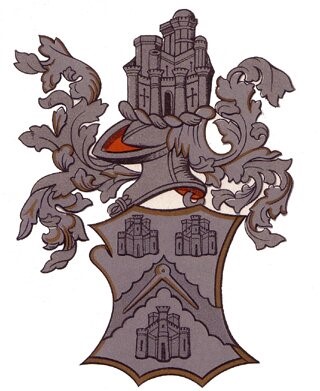
The Premier Grand Assembly of English Freemasons 1705
The General Assembly at York, continued regularly to meet as heretofore. In 1705, under the direction of Sir George Tempest Bathurst then Grand Master, several Craft Lodges met, and many worthy brethren were initiated in York and its neighbourhood. Sir George being succeeded by the Right Hon. Robert Benson, Lord Mayor of York, a number of meetings of the Fraternity was held at different times in that city, and the grand feast during his Grand Mastership is said to have been very brilliant.
Sir William Robinson Bathurst succeeded Mr. Benson in the office of Grand Master, and the fraternity seem to have considerably increased in the North under his auspices. He was succeeded by Sir Walter Hawkesworth Bathurst who governed the Society with great credit. At the expiration of his Grand Mastership, Sir George Tempest was elected a second time Grand Master; and from the time of his election in 1714 to 1725, the Grand Assembly continued regularly to assemble at York under the direction of Charles Fairfax Esq. Sir Walter Hawkesworth Bathurst, Edward Bell esq. Charles Bathurst Esq. Edward Thomson Esq. M. P. John Johnson M. D. and John Marsden esq. all of whom, in rotation, during the above period, regularly filled the office of Grand Master in the North of England.
From this account, which is authenticated by the books of the Old Grand Lodge at York, it appears, that the revival of masonry in the South of England did not interfere with the proceedings of the Fraternity in the North. For a series of years the most perfect harmony subsisted between the two Grand Lodges, and private lodges flourished in both parts of the kingdom under their separate jurisdiction. The only distinction, which the Premier Grand Lodge in the North appears to have retained after the revival of masonry in the South, is in the title, which they claim, viz. The Grand Lodge of all England; while the new organization in the South passes only under the denomination of The Grand Lodge of England.
The latter, on account of its situation, being encouraged by some of the principal nobility, soon acquired consequence and reputation; while the former, restricted to fewer, though not less respectable, members, seemed gradually to decline. Till within these few years, however, the authority of the Grand Lodge at York was never challenged; on the contrary, every mason in the kingdom held it in the highest veneration, and considered himself bound by the charges, which originally sprung from that assembly. To be ranked as descendants of the original York masons, was the glory and boast of the brethren in almost every country where masonry was established; and, from the prevalence and universality of the idea, that in the city of York masonry was first established by charter, the masons of England have received tribute from the first states in Europe.
It is much to be regretted, that any separate interests should have destroyed the social intercourse of masons; but it is no less remarkable than true, that the brethren in the North and those in the South are now in a manner unknown to each other. Notwithstanding the pitch of eminence and splendour at which the new “Grand Lodge in London” as arrived, neither the lodges of Scotland nor Ireland court its correspondence. This unfortunate circumstance has been attributed to the introduction of some modern innovations among the lodges in the South.
As to the coolness, which has subsisted between the Premier Grand Lodge at York and the new organization at London, another reason is assigned. A few brethren at York having, on some trivial occasion, seceded from their ancient lodge, they applied to London for a warrant of constitution; and without any inquiry into the merits of the case, their application was honoured. Instead of being recommended to the Mother Lodge to be restored to favour, these brethren were encouraged in their revolt; and permitted, under the banner of a “Grand Lodge at London”, to open a new lodge in the city of York itself. This illegal extension of power justly offended the Mother Grand Lodge at York, and occasioned a breach, which time, and a proper attention to the rules of the Order, only can repair.
RW Bro. Drake a learned Antiquarian and Historian of York, in a speech delivered at a meeting held in 1726, calls Brotherly Love, Relieve and Truth, the three great characteristics of the Association. And declares that the first Grand Lodge ever held in England was first held at York. “This is sufficient to make us dispute the superiority with the (new) Lodges at London: but as nought of that kind ought to be amongst so amicable a fraternity, we are content that they (London) enjoy the title of Grand Master of England; but the Totius Angliae (All England) we claim as our undoubted right.”
![]()
